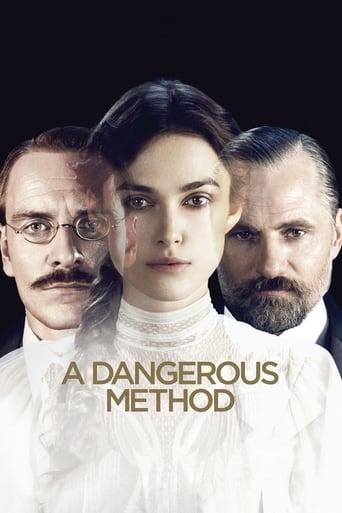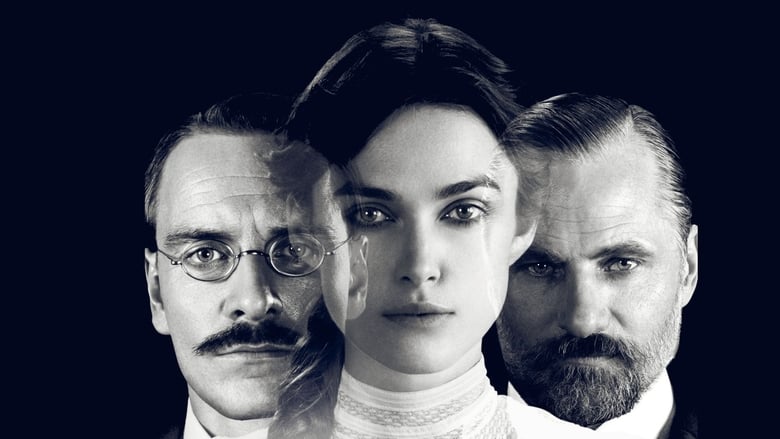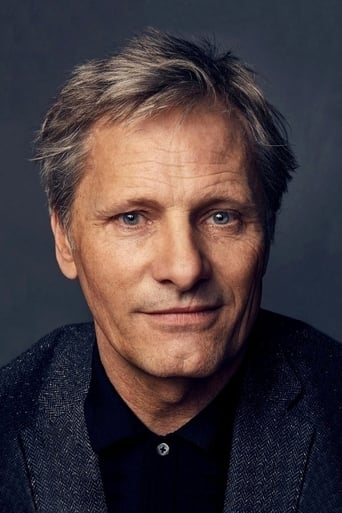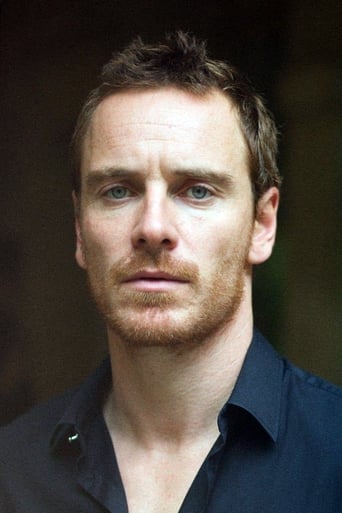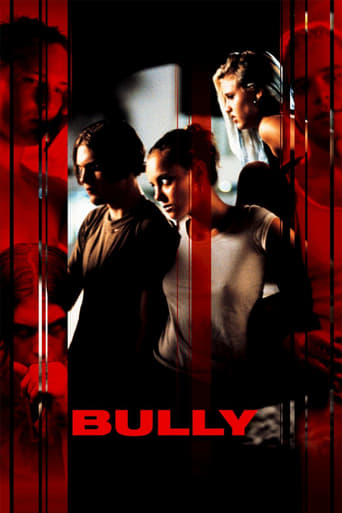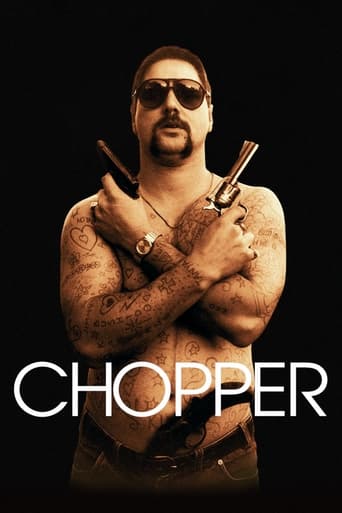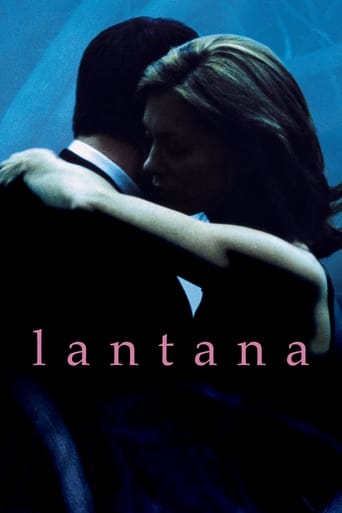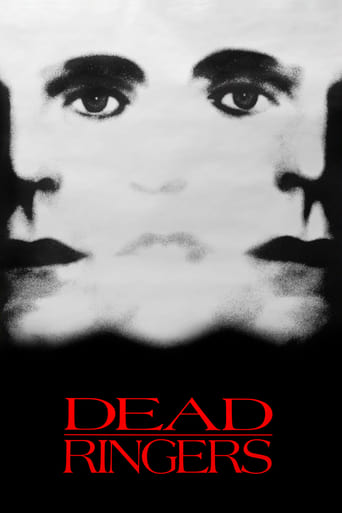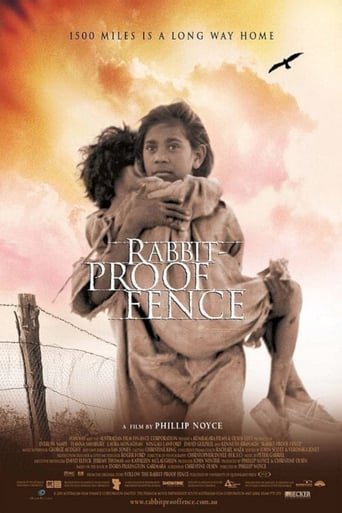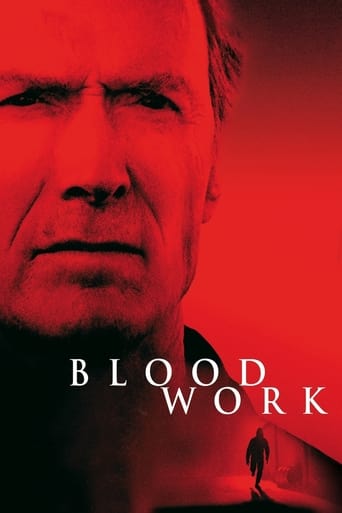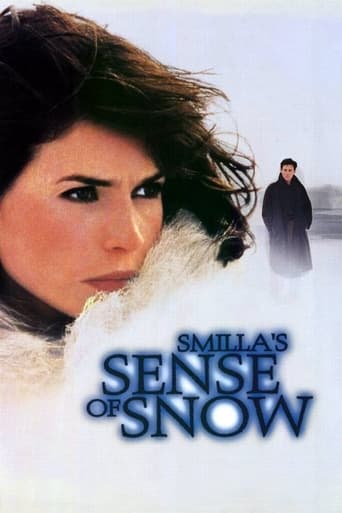A Dangerous Method (2011)
Seduced by the challenge of an impossible case, the driven Dr. Carl Jung takes the unbalanced yet beautiful Sabina Spielrein as his patient. Jung’s weapon is the method of his master, the renowned Sigmund Freud. Both men fall under Sabina’s spell.
Watch Trailer
Cast


Similar titles
Reviews
Touches You
Just what I expected
I like movies that are aware of what they are selling... without [any] greater aspirations than to make people laugh and that's it.
The story, direction, characters, and writing/dialogue is akin to taking a tranquilizer shot to the neck, but everything else was so well done.
A biographical drama movie about Dr. Carl Jung, founder of analytical psychology, Professor Sigmund Freud, founder of psychoanalysis, and Sabina Spielrein, a patient of Jung and eventually one of the first female psychoanalysts. It starts when Spielrein arrives to the become of Jung's patients and follows their lives from thereon out.Like a good biographical dram should, this movie taught me quite a lot about the subject matter. Naturally, as a movie under two hours, it takes certain liberties with the source material, but the essentials are still there and they're there to spark your interest. I've gone to Wikipedia after many of these movies to learn more. Likewise in this case. For example, I was quite aware who Freud and Jung were and I was familiar with the gist of their theories and studies. I was even aware that Jung was considered to be something of a successor to Freud's work. But I had never quite realized that they had been peers in the same field living at the same time. Jung is younger, certainly, but they had frequent correspondence and regarded each other as equals. Or at least very close to equals. I also had never realized that Freud's Jewish origins painted his discipline in a certain light in those early days of the 20th century.Though, to be fair, the movie has some flaws. The acting is for the most part great. Viggo Mortensen as Sigmund Freud is especially inspired casting and his tired musings are some of the best content the film has to offer. Keira Knightley as Sabina Spielrein is the one that's going to divide opinions. Her later scenes are for the most part fine, but some of her early scenes, when she's still suffering from severe hysteria, are almost laughably over the top. She juts her jaw out like a cavewoman, speaks with odd pauses and behaves quite like the stereotypical cartoon mental patient. It's of course possible that the real Spielrein had such symptoms, but I doubt it.The movie also suffers from the bane of biographical movies, which is to say that the story doesn't have enough cohesion. The initial setup in certainly interesting, as are the characters, but the film falters towards the end because there's really no great place to stop. There are still things in the future worth mentioning, but the overall themes and ideas have already been exhausted, yet the characters continue to live their lives. Like real people do. Very few biographical movies can escape this trap, and I don't blame this movie for being unable to do so, but it's still something of a problem.Still, definitely a film worth watching for the fans of the genre.
This is a movie about intelligent people who are trying to elevate their guesses about human nature to the level of a new science. But the fact that they are intelligent doesn't turn their guesses into objective truth, or cause them to become wise, or make them into role models.Let me stop here and say that frankly this is a difficult movie to review partly because it really doesn't conform to expectations. Not that it should. On the one hand these (Jung, Freud, Spielrein, Otto Gross) are people dealing with their own desires for sexuality, power, freedom from social restraint, and so on. On the other hand they are trying to turn their personal insights or ideas into scientific dogmas. On a third hand they are trying to argue about these dogmas with each other while engaging in sex and in power games with each other, so you see people on the screen whose bodies are interacting on a physical level while at the same time carrying on a running intellectualized commentary and discussion on themselves. This is somewhat disconcerting to watch and could easily be developed into a comedic sketch.Another issue for the moviegoer is that the insights of the early psychoanalysts haven't exactly stood up to the inquiries of modern science the way Einstein's theories have. From the modern standpoint - well, mine anyway - the arguments between Spielrein and Freud and Jung about (say) whether the sex instinct is creative or whether it must incorporate the death instinct and embody destruction of the individual ego (more or less) seem to be really a lot like religious arguments in the early Christian church about whether the Spirit proceeds from the Father or not. There are no testable hypotheses, no material referents, just talk. Now, I'm not claiming that the seekers in question are made out to be hypocrites. They are at least somewhat sincere - even Gross, who claims that psychological health is to have as much sex and as little moral restraint as possible. And they aren't charlatans. Spielrein comes to Jung as his patient in a horrible mental state; through his "talking cure" she becomes a respected professional. Of course he also gets into a sexual affair with her. But to be fair psychiatric ethics didn't exist yet, and this is Vienna circa 1906, when professional men like Jung have wives and children and also mistresses apparently as a matter of course, so it's not reasonable to castigate Jung as some kind of exploitative monster towards his patient and towards his wife without mentioning that it was a monstrous time and a monstrous world. It's not as if the camera isn't critical of him.Still, it's fair to say that no matter how sincere they think they are, they are all rationalizing and fooling themselves to some degree, though not so much each other. Freud, for example, who at one point calmly declares that of course he bears no ill will to Jung, he merely can't support Jung's stupid primitive religious idiotic nonsense, or words to that effect. Things like that are interesting and worth seeing the movie for, and the performances are pretty seamless - I really have to put in a shout out to Sarah Gadon who plays Emma Jung with great delicacy. But if you want dramatic progression or a third-act climax (SPOILER) you really won't get any. They go their ways and ultimately you get biographical notes before the end credits. But on the plus side a few days later you may start thinking about issues raised in the film, like, were these people just successful neurotics, or were they intuitive helpers but failures at creating a science, or was their science more successful than that, or were they really sort of like founders of a religion after all? So I'm glad I saw it.
A DANGEROUS METHOD David Cronenberg moves from body horror to mental dangers in this intelligent and handsomely mounted production of a tale from the early history of psychiatry: the relationships between Sigmund Freud, played by Viggo Mortenson, Carl Jung, played by Michael Fassbender, and two of the forgotten people of early psychoanalysis, Sabine Speilrein, Keira Knightley, and Otto Gross, Vincent Cassel.The film imagines a love affair between Carl Jung and one of his patients, Sabine Spielrein, a woman who went on to become an important psychiatrist in her own right. Spielrein's case prompted Jung to contact Sigmund Freud in 1906 for insights into treating her, beginning the relationship between Jung and Freud which lasted until their split in 1914.Relationships are at the centre of the movie. As well as Spielrein and Jung, there are those between Jung and Freud, between Jung and his wife, between Spielrein and Freud, and, most subtly, between Jung and Otto Gross, sent to Jung by Freud for treatment but who ends up influencing Jung into a very different world-view, one which sends him straight into the arms of Sabine Spielrein and some very unorthodox treatment.The film begins with a burst of action as Sabine Spielrein is dumped at the Burgholzi clinic in Switzerland in 1904 and taken as a patient by the newly-qualified Dr Carl Jung. She was diagnosed by Jung as a psychotic hysteric and Keira Knightley's depiction of this state is pretty close to Jung's initial notes, using her own physicality to describe Spielrein's derangement. Her condition improves but that unstable, twitchy dimension is always there as Keira Knightley keeps her on the edge right to the end.Michael Fassbender plays Jung as the polar opposite of Spielrein. Jung is calm, good-natured, kindly, and thoroughly decent even when he's having his affair with her or falling out with Freud. There's an attractive, genuine quality in Fassbender that makes him the stable centre of the film.The other great relationship in the film is between Freud and Jung. Viggo Mortensen's Freud is obsessed with protecting psychoanalysis from its enemies, sizing up Jung as a potential successor yet careful to maintain his own status as head of the clan. There's a dry wit in his performance along with an honesty about Freud's less appealing side, such as his chagrin at Jung's wealthy wife that lets us see Freud as human, all too human - a great but difficult man caught up in the dilemma of looking for a crown prince then, when he finds one, driving him into exile.The arrival of Otto Gross propels the film forward and provides Jung with the impetus, or the excuse, to start an affair with Sabine Spielrein. Gross is the chaos factor, breaking the stalemate between Spielrein's desire for Jung and Jung's staid conservatism and professionalism. Vincent Cassel plays Otto Gross as neurotic, shallow, insightful and obsessive, going through one sexual experience after another in search of Experience, permanently unhappy. He rejected Freud's idea of repression as a necessity for civilised behaviour, insisting on the immediacy of experience as negating the need for analysis, and challenging Jung at every step to do the obvious thing and have an affair with Sabine. It's an intelligent portrayal by Cassel, emphasising the mental and emotional distance between himself and Freud and Jung and condemning their inability to help him or, in his opinion, themselves. When he climbs over a wall and heads off to his tragic fate, of poverty and death, he is walking away from the possibility of psychiatry itself.The urgency and sense of panic in his early horror classics are long gone for Cronenberg. A Dangerous Method has a slow, regular pace and some scenes have an almost painterly quality, aided by some great digital matte backgrounds. Scenes are carefully composed with soft focus around the edges of facial shots keeping our attention on the middle of the frame. Outdoor scenes have people slowly promenading in the background along riversides or in parks, adding life and motion and giving a depth to the world.Deep inside the end credits it says "This film is based on true events, but certain scenes, especially those in the private sphere, are of a speculative nature". The mix of fact and speculation has produced a consistent story thanks to Cronenberg's tight focus on characters who are brought to life by great actors in a film of pristine production values and beautiful music. In a way this mirrors the dangerous and optimistic offer of psychoanalysis: to mix the known and unknown in consciousness and produce a better, more consistent human being.
It's 1904. Hysterical Sabina Spielrein (Keira Knightley) is sent to Dr. Carl Jung (Michael Fassbender) in Zurich for treatment. She has psychological sexual problems based on her violent father. He has a cold clinical relationship with his wife Emma (Sarah Gadon). The older Dr. Sigmund Freud (Viggo Mortensen) is the elder statesman to Jung but he's starting to chaff at the paternal relationship. Freud sends a new patient Otto Gross (Vincent Cassel) to Jung. Spielrein's treatment goes so well that she eventually becomes a psychiatrist herself. The close working relationship translates into a sexual relationship.This has great director David Cronenberg, great actors, and a fascinating history. The acting is top notch. Keira Knightley is going over the top. There are lots to like but I find this too lifeless. I may be bias against psychoanalysis and discussing about emotions rather than just feeling the emotions. It's not cinematic. But this is Carl Jung and Sigmund Freud afterall. I don't think there is anyway to make it any more exciting. The clinical world just makes the passions feel very clinical.

